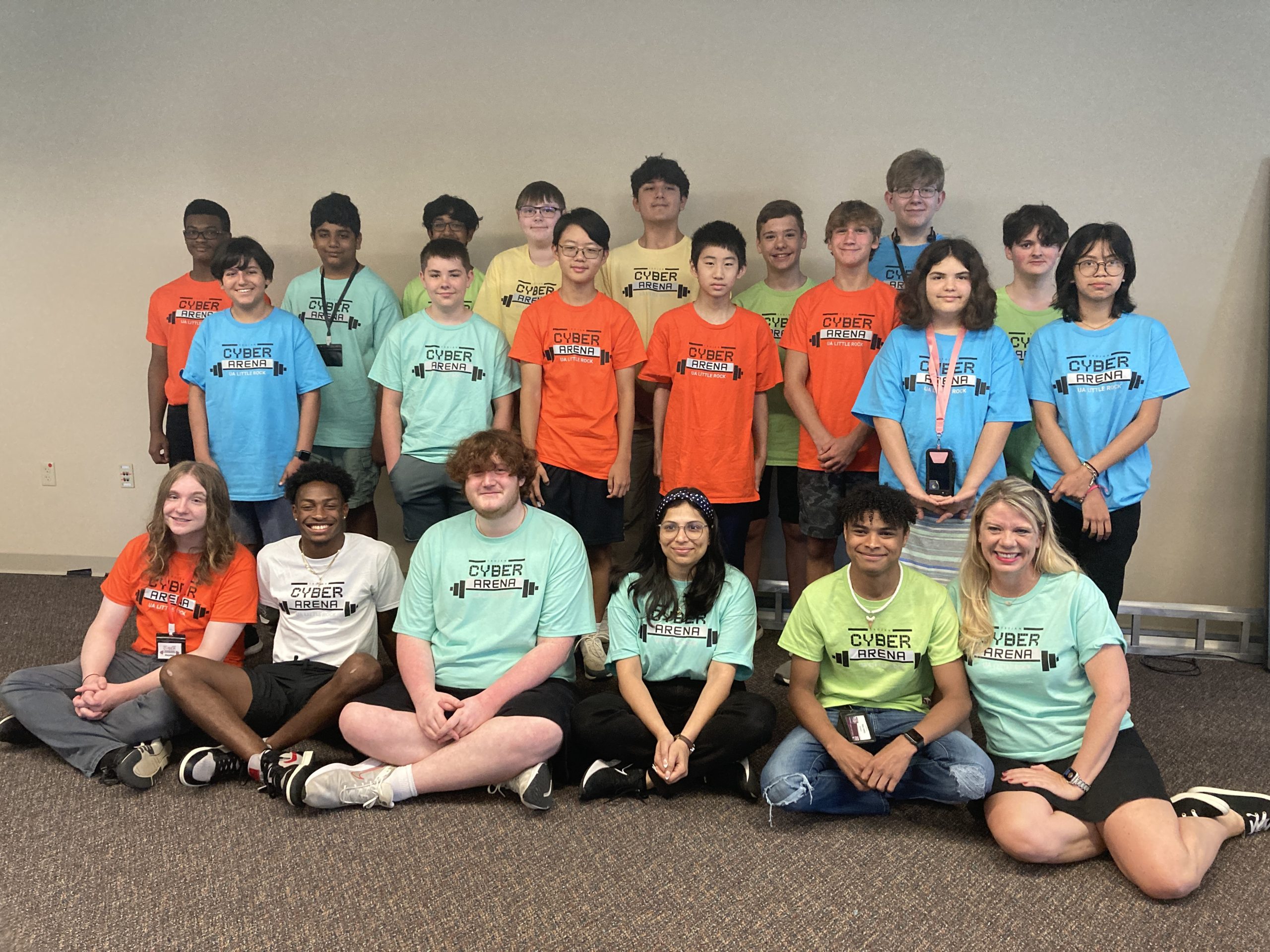UA Little Rock Teaches Cybersecurity Skills to Next Generation

UA Little Rock hosted a cybersecurity summer camp designed to equip students in grades 7-12 with essential cybersecurity skills, providing them with hands-on experience in safeguarding digital information and exploring the fast-growing field of cybersecurity.
Students learned the skills necessary to protect against digital threats, including the CIA of cybersecurity, which is confidentiality, integrity, and availability. Dr. Philip Huff, Dr. Sandra Leiterman, and students from the UA Little Rock Cyber Arena taught students how layers of security work to form barriers, how to stay one step ahead of hackers, and how artificial-intelligence technology can be harnessed to bolster defenses and counter attacks.
Kyle Stewart, a rising 10th grader, decided to take the cybersecurity camp after learning about it from his computer science teacher.
“I thought getting some education in cybersecurity would be valuable,” Stewart said. “I think there is a possibility I will go into cybersecurity because I enjoy coding and learning about coding, and I do it in my free time. I think that everyone should take this week-long course even if they don’t intend to go into the cybersecurity field.”
As part of the camp, the students split into teams and created public service announcements promoting cybersecurity awareness.
“My group made an animation where one person was at a friend’s house, and they saw them sign in using a password that is vulnerable and easily hacked so they warn them about password security,” Stewart said.
Calliope L’Eplattenier, a rising eighth grader, is new to cybersecurity, but thought it seemed an interesting topic to explore.
“We’ve been learning what are some possible cyber threats and learning how to code,” she said. “My favorite part was learning how to code. I was completely new to cybersecurity. I thought it would be interesting, and I am really glad I tried it out. I will probably come back again.”
Tucker Lampe, a rising eighth grader, thought it would be “good to know about cybersecurity because we use electronics and computers every day and it’s good to stay protected.”
Lampe is considering cybersecurity as a potential career. He learned about cybersecurity terminology, viruses, malware, and how to inject code into websites.
“It was kind of cool,” he said. “My favorite part of the camp was learning how viruses and malware spread. It will help me avoid getting that on my system.”
For his group project, Lampe and his teammates created a video game where the player had to answer questions about cybersecurity.
